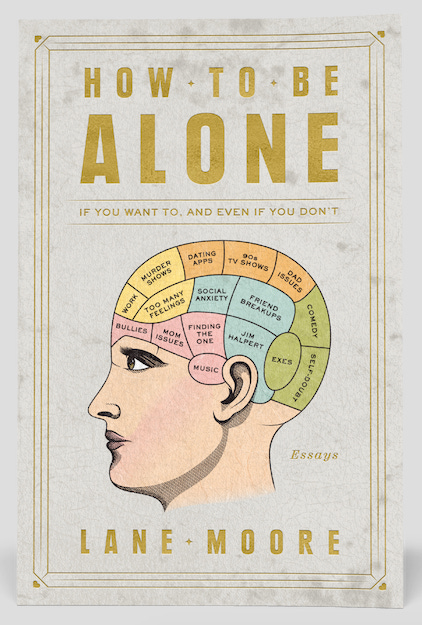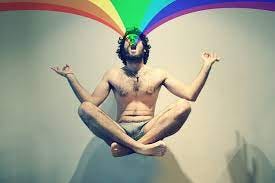Lane Moore and more, including a brand new meditation segment
Also a break for poetry. Breaks are important.
Lane Moore, alone and with others
Turns out there can be all kinds of ways to live in the modern world and all kinds of jobs to have while you’re there.
Lane Moore, our guest on the podcast this week, has been dealing with CPTSD, or complex post-traumatic stress disorder, for as long as she can remember. We don’t get into the exact traumas in this episode (because sometimes that’s not the right course in a discussion of trauma) but we do get into the idea of being alone. For Lane, there hasn’t been enough discussion or recognition of the realities of being alone in our contemporary society. She says there’s an assumption that everyone is entitled to finding their soulmate, their friend group, their people. But Lane challenges us to consider that maybe that’s just not true. Maybe some people are just alone.
She considers herself to be one of those people, the CPTSD contributing to that state of being. And she’s written a book that has become something of a hit: How to Be Alone: If You Want To, and Even If You Don't.
Considering the fact that she’s a respected author, it’s a bit funny that she makes a living on the subject of people trying to get together. Lane is the creator and host/performer of Tinder Live, where she goes on stage and checks the dating scene in whatever city she’s in.
Anyway, listen to what Lane has to say in the episode.
On the flip side…
THEN listen to Laura House, immediately after Lane in the same episode, and listen to what she has to say and what she DOESN’T have to say. What? I KNOW.
We’re trying out a new segment this week. Maybe it’s called Meditation Moment. Or Meditation Minute. Or maybe it doesn’t need capital letters or a proper title because that would be more chill. Laura, co-host of Tiny Victories and a veteran meditation teacher, guides us through a little exercise to maximize your presence in the present. I loved taping this and listening to it. It has SO MUCH silence. I almost said dead air but it’s very much alive because our minds are in it.
But I’ve been in some form of audio production for 20 years now and have been taught to fear and despise dead air.
(Depeche Mode is a band based on my podcast, of course. Not really.)
When I worked at KUOW, the NPR station in Seattle, there was a system set up that if there was a certain number of seconds of dead air, a series of phone calls would go out automatically to the engineering staff at their homes. Got 30 seconds of dead air at three in the morning? Engineer would be phoned. There are so many reasons you don’t want that to happen.
Sometimes I had to do the overnight shift, which didn’t mean that I was there overnight, just that I pre-recorded the breaks during the previous day and automated it to play. But if I miscalculated the space made available for me to talk, if there was more break than me, the result would be dead air and some explaining to do to an engineer without sufficient rest.
This meditation moment on this podcast, the feeling you get as a result of it, that’s the opposite of a groggy irate engineer.
I did an image search on “bad meditation” and I got this poor fella:
Remember, listen to our show, listen to Laura, because you wouldn’t want to start barfing rainbows like poor Godspell here.
Mental health disorders linked to higher risk of severe COVID-19
The CDC has added mood disorders and schizophrenia spectrum disorders to the list of factors that can put someone at higher risk of severe disease from covid.
There has been evidence of this for a while and mental health advocates are wondering why it took this long:
With so much compounding evidence, mental health advocates wondered why it took so long for health officials to name mental health disorders as an underlying medical condition associated with higher risk of severe COVID-19.
“This is a reflection of an essential bias and stigma,” said Schroeder Stribling, president and CEO of Mental Health America, a nonprofit promoting mental health awareness and services. “It’s very hard to overcome this false dichotomy that we have about mental health and physical health.”
There are worse ways to spend two minutes and seventeen seconds of your life

Man, this social media stuff isn’t all bad.



